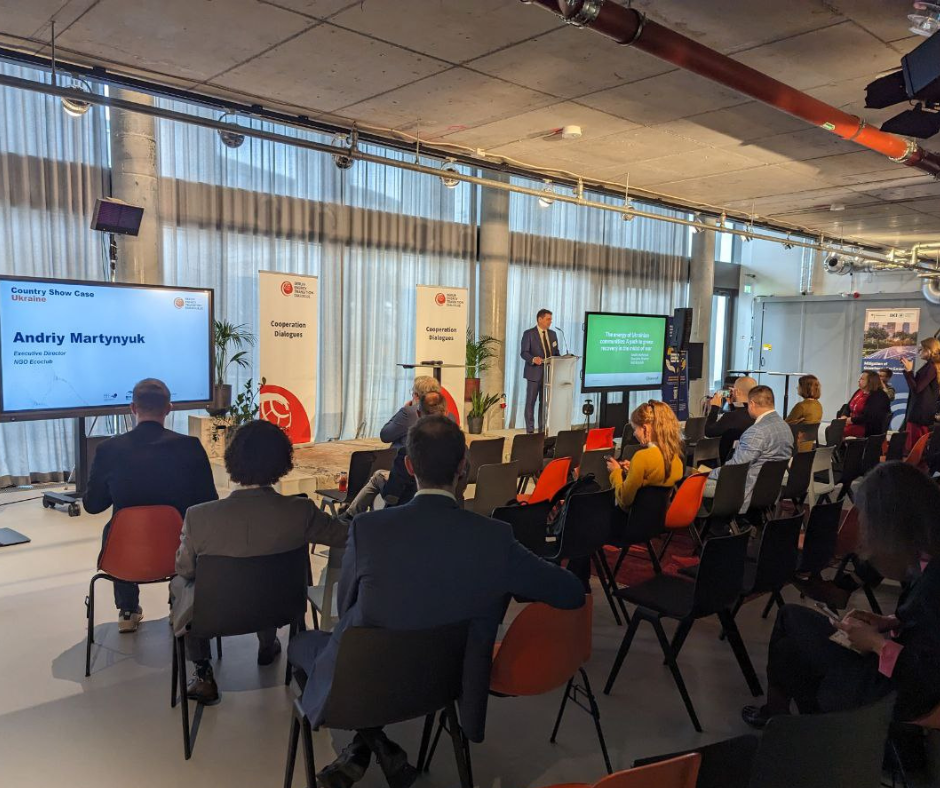Russians have attacked energy facilities all over the country. Electrical substations, wind, and solar generation suffer enormous damage every single day. One of the consequences of the massive shelling is the inability to transfer electricity from the west to the east of Ukraine. Therefore, the issue of developing decentralized renewable energy facilities in Ukrainian municipalities is particularly important.
Distributed generation facilities produce right where this electricity is consumed. In addition, they are harder to destroy with missiles than centralized energy facilities, said Energy Minister Herman Galushchenko at the Berlin Energy Transition Days conference on March 29.
Increasing distributed generation based on renewable energy sources along with improving energy efficiency is a response to both Russian missile attacks and the climate crisis. Therefore, it is a contribution to the green post-war recovery of Ukraine, which already needs to be started. After all, the ill-fated consumption of fossil fuels caused the climate crisis and made it possible for Russia to launch a full-scale attack.
Despite martial law, Ukrainian communities are already benefiting from the development of renewable energy sources. The cost of electricity from solar power plants (SPPs) is 5-7, sometimes 10 times less than electricity generated by diesel generators. The operation of SPPs does not depend on fossil fuel supplies, the installations are easy to operate and have an average lifespan of 20 years. Among the disadvantages are that they cannot be turned on at night, like generators, and require high initial investments.

“We must continue developing the decentralization reform, the most successful in Ukrainian history. To make this possible, it is necessary to strengthen the capacity of local governments to develop and implement sustainable energy projects. Capacity development of local governments should be an integral part of any recovery efforts,” insisted Andriy Martyniuk, Executive Director of Ecoclub, in his speech at the Cooperation Dialogue forum: The forum for energy and climate partnerships.
Andriy Martyniuk also emphasized that community access to financing and support should be one of the components of energy decentralization in Ukraine:
“This should be based on clear and precise criteria, not on the highest political will. We are talking not only about grant support but also about affordable, profitable, and long-term loans,” he added.
Berlin Energy Transition Days is a conference that took place on March 28-30 in Berlin, Germany. Ministers and delegations from more than 60 countries participate in discussions with representatives of business, science, and civil society.
The topics for discussion include how to accelerate the global energy transition and make concerted and global efforts to build a sustainable, secure, and independent energy supply system. For more information, please follow the link.
The material is published within the framework of the project “Closing the Loop: A Just Energy Transition Designed by Cities and Regions” with the financial support of the European Union. Its contents are the sole responsibility of the NGO Ecoclub and do not necessarily reflect the views of the European Union.











